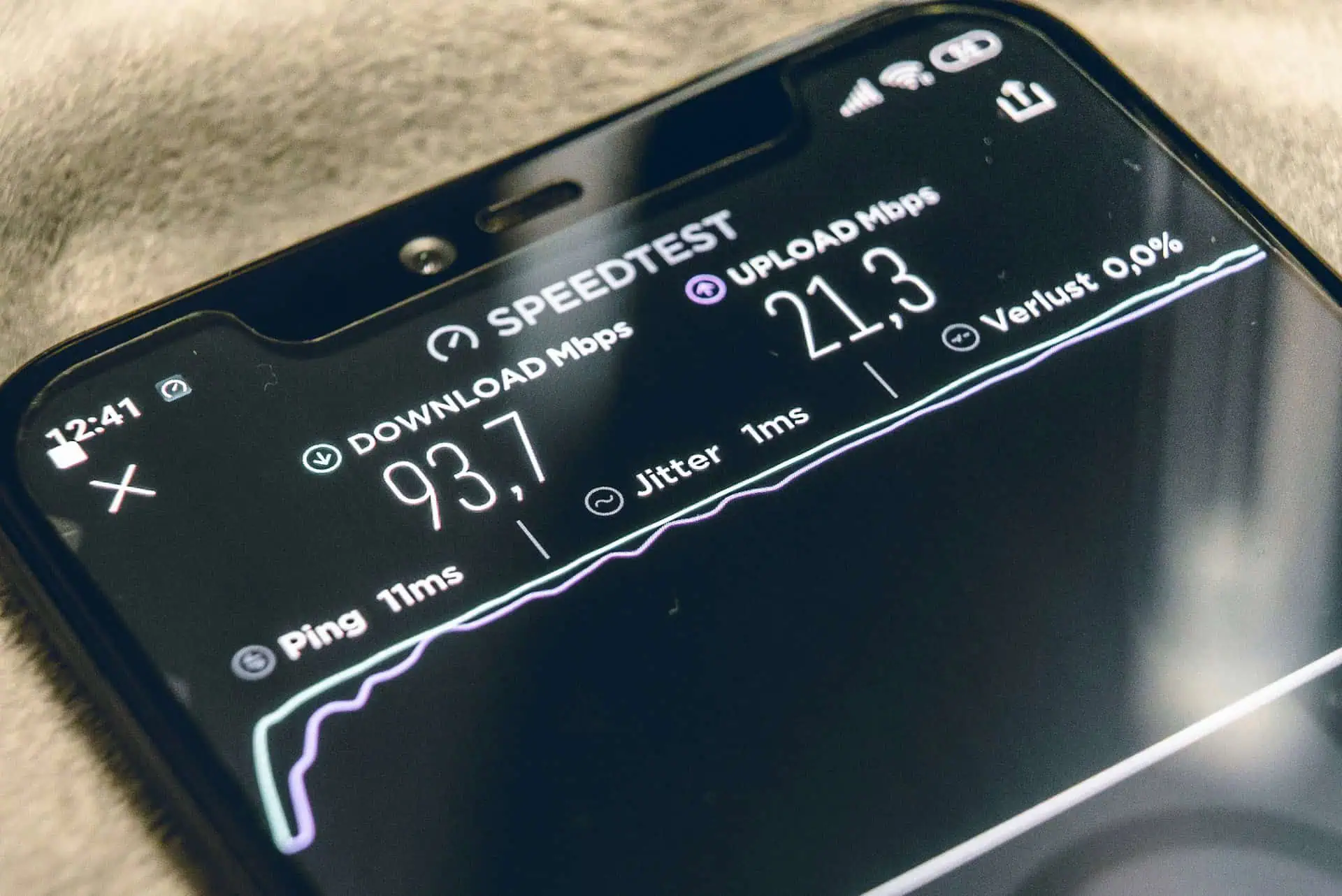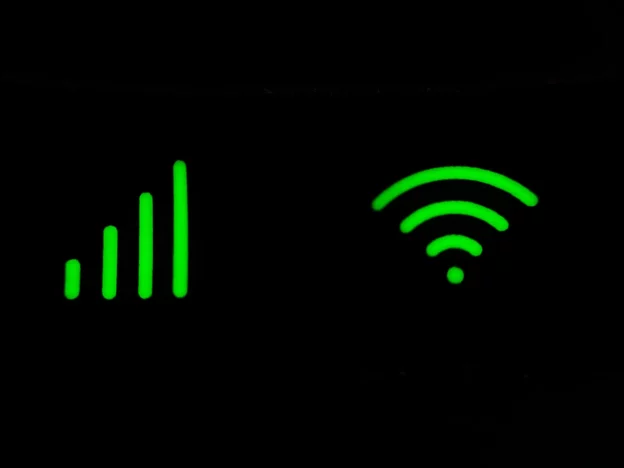Internet speed is a critical factor for seamless online experiences, whether it’s for streaming, gaming, or telecommuting. With the ever-increasing demand for bandwidth, understanding what constitutes ‘fast internet’ has become essential.
This article explores the classifications of internet speed, the impact of household demand, and guides you in choosing the right speed for your needs.
Key Takeaways
- Internet speeds of 200 Mbps download and 20 Mbps upload are generally considered fast, with the FCC updating the high-speed threshold to 100/20 Mbps.
- The definition of ‘fast internet’ varies based on household demand, with some requiring speeds of at least 100 Mbps, while others may need gigabit or multi-gigabit tiers.
- Choosing the right internet speed involves understanding your household’s internet usage, considering common fast speed tiers, and the offerings of internet service providers.
Understanding Internet Speed Classifications
Defining Fast Internet Speeds
When we talk about what is considered fast internet, we’re referring to the ability to handle multiple online activities simultaneously without interruption. Internet download speeds of 200 Mbps or higher are typically classified as fast. This benchmark has risen over time, reflecting the increasing demand for quicker data transmission as more devices connect to the internet.
Fast internet speeds are not just about the numbers; they also depend on the technology behind them. Various high-speed internet plans are offered, each with different speeds and technologies to suit diverse needs. Whether it’s cable internet or the more consistent fibre optic internet, the options are plentiful.
It’s important to note that while some households may find speeds of 100 Mbps to be sufficient, others may require tiers reaching up to 5,000 Mbps, especially in scenarios involving heavy usage like online gaming or streaming in high definition.
The Impact of Household Demand on Speed Requirements
When we consider our home internet needs, it’s crucial to understand that the number of devices and the types of activities we engage in can greatly influence the speed requirements.
For instance, a household with multiple devices streaming 4K videos, gaming online, and participating in video conferencing will need a significantly higher speed compared to a home with basic browsing and email usage. We must account for the cumulative demand of all these activities to ensure a seamless online experience.
It’s not just about the number of devices, but also the quality of the activities. High-bandwidth activities like group calls at 1080p HD quality or large file downloads can quickly consume available bandwidth.
This is why we need to explore internet connectivity options, including fibre optic vs cable speeds, to find the most suitable solution for our household. Internet speed guides can be helpful in determining what speed tier matches our collective usage.
Lastly, the installation process and the availability of free WiFi hotspots can also play a role in how we meet our internet needs. Setting up WiFi at home with the right speed can make a difference in whether we experience a smooth or frustrating online presence. By considering all these factors, we can choose an internet plan that won’t leave us struggling with slow speeds during critical moments.
Choose VMedia for the Right Speed
VMedia understands that different households have varied internet needs. Our high-speed internet plans accommodate everything from casual browsing to heavy streaming and gaming.
Whether you require 200 Mbps for smooth video calls or multi-gigabit speeds for large households, VMedia offers a range of speeds that cater to your specific usage patterns.
We ensure fast, reliable internet that keeps up with all your devices, allowing for seamless connectivity throughout your home.
Recognizing Slow Internet Speeds
In our connected world, we often take for granted the ability to stream, browse, and download with ease. However, when we encounter slow internet speeds, it’s a stark reminder of the limitations of certain types of connections.
For instance, dial-up internet, with its maximum of 56 kbps, is painfully inadequate for most online activities beyond checking email. Similarly, DSL services with speeds under 25 Mbps struggle to keep up with the demands of modern internet usage.
It’s important to recognize the signs of inadequate internet speeds. Experiences such as buffering during video streams, difficulties in connecting multiple devices, and prolonged loading times for web pages are clear indicators. These issues are not just inconveniences; they can significantly disrupt our online activities and productivity.
If you’re facing persistent speed-related challenges, it might not just be the technology at hand. Sometimes, the problem lies with the broadband provider. It’s essential to be aware of potential internet throttling, a practice where providers intentionally slow down your internet speed. If you suspect this is happening, there are steps you can take to address it and improve your internet experience.
Related: Slow Internet Driving You Crazy? Try These Solutions

Choosing the Right Internet Speed for Your Needs
How to Determine the Internet Speed You Need
To determine the right internet speed for our needs, we must first assess our online activities and the number of devices that will be connected simultaneously. Streaming, gaming, and video conferencing all require a certain amount of bandwidth to function smoothly. Here’s a simple guide to help us decide:
- Consider the online activities that are most important to us and note the speed requirements for each.
- Add up the total speed necessary for all activities to run concurrently without interruption.
- Factor in the number of devices that will be connected, as each one can consume part of our bandwidth.
Strike a balance between sufficient speed for our daily tasks and the cost of the service. One should look for various high-speed internet plans that cater to our specific needs, keeping in mind that some plans may offer equipment deals or credits without requiring long-term contracts.
By carefully evaluating our usage and the offers available, we can select an internet plan that ensures we’re neither overpaying nor underpowered.
Related: Internet Speed Explained: Your Ultimate Guide to Choosing the Right Speed
Common Fast Internet Speed Tiers
When we talk about fast internet, we’re referring to speeds that can handle multiple devices and high-bandwidth activities without a hitch.
Typical high-speed internet packages begin at 200 Mbps and can reach up to 5,000 Mbps, offering optimal performance for uninterrupted streaming, gaming, and handling large file transfers.
- 200 Mbps
- 250 Mbps
- 300 Mbps
- 400 Mbps
- 500 Mbps
- 1,000 Mbps (1 Gbps)
- 2,000 Mbps
- 5,000 Mbps
It’s important to note that the availability of these speeds can vary based on your location and the internet service providers (ISPs) in your area.
For instance, fibre optic internet offers consistent speeds and is less affected by peak usage times, making it a reliable choice for those in need of fast internet.
On the other hand, cable internet can also provide high speeds, but may be more susceptible to fluctuations during high-traffic periods.
Related: Best High-Speed Internet Providers in Canada
VMedia’s Flexible Internet Solutions
VMedia provides a spectrum of internet plans, each designed to deliver reliable speeds that fit your budget. Our comparison page allows you to easily match your needs with our speed options.
From affordable basic packages to high-speed plans that reach gigabit levels, our service ensures you’re equipped for your online activities without lag or buffering. Visit our website to explore VMedia’s flexible and customer-centric internet solutions that will keep you connected smoothly.
The Role of Internet Service Providers in Speed Availability
Internet Service Providers (ISPs) play a pivotal role in determining the internet speeds we can access. They offer a variety of plans, each with different speed tiers, allowing us to choose based on our needs and budget. Typically, the higher the speed, the higher the cost, making it essential to balance our desire for fast internet with what we’re willing to pay.
When selecting an ISP, we should consider not only the advertised maximum speeds but also the range of available speed options.
ISPs differentiate themselves by offering plans that cater to diverse demands, from basic browsing to heavy streaming and gaming. It’s important to look at the value each plan provides, which includes factors like price, reliability, and customer care.
Moreover, the type of connection an ISP offers affects performance. Technologies like cable and fibre internet are known for their faster transfer rates and reliability compared to DSL and satellite.
Availability varies by location, so we must check what’s accessible in our area. By understanding the offerings of various ISPs and evaluating them based on speed, value, and customer care, we can make an informed decision that aligns with our internet usage habits.
Navigating the vast sea of internet options can be daunting, but finding the perfect speed for your lifestyle is crucial. Whether you’re a casual browser, an avid gamer, or running a home office, we’ve got you covered.
Don’t let slow speeds hinder your online experience. Visit our website to explore our tailored plans and find the one that fits you like a glove.

Make the smart move and ensure your connection is as fast-paced as your life. Click here to choose your ideal internet speed today!
VMedia: Speed and Service that Keep You Connected
In the quest for fast internet, it’s crucial to choose a service provider that not only offers high-speed internet but also ensures reliability and quality. VMedia is the standout in the ISP market, known for its wide array of internet packages designed to meet various speed requirements and user preferences.
Whether you are a professional requiring ultra-fast speeds for work or a family needing stable and speedy internet for entertainment and education, VMedia provides tailored options. Our service guarantees minimal downtime and peak performance, which is essential for anyone relying on constant and fast internet connectivity.
To better understand the specifics of what makes the internet fast and how different plans cater to speed needs, check out VMedia’s internet plan comparison page. This resource is invaluable for those looking to upgrade their internet speed or evaluate their current plan.

